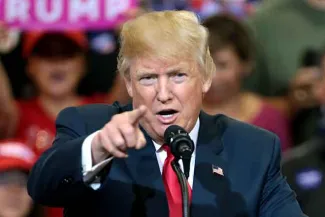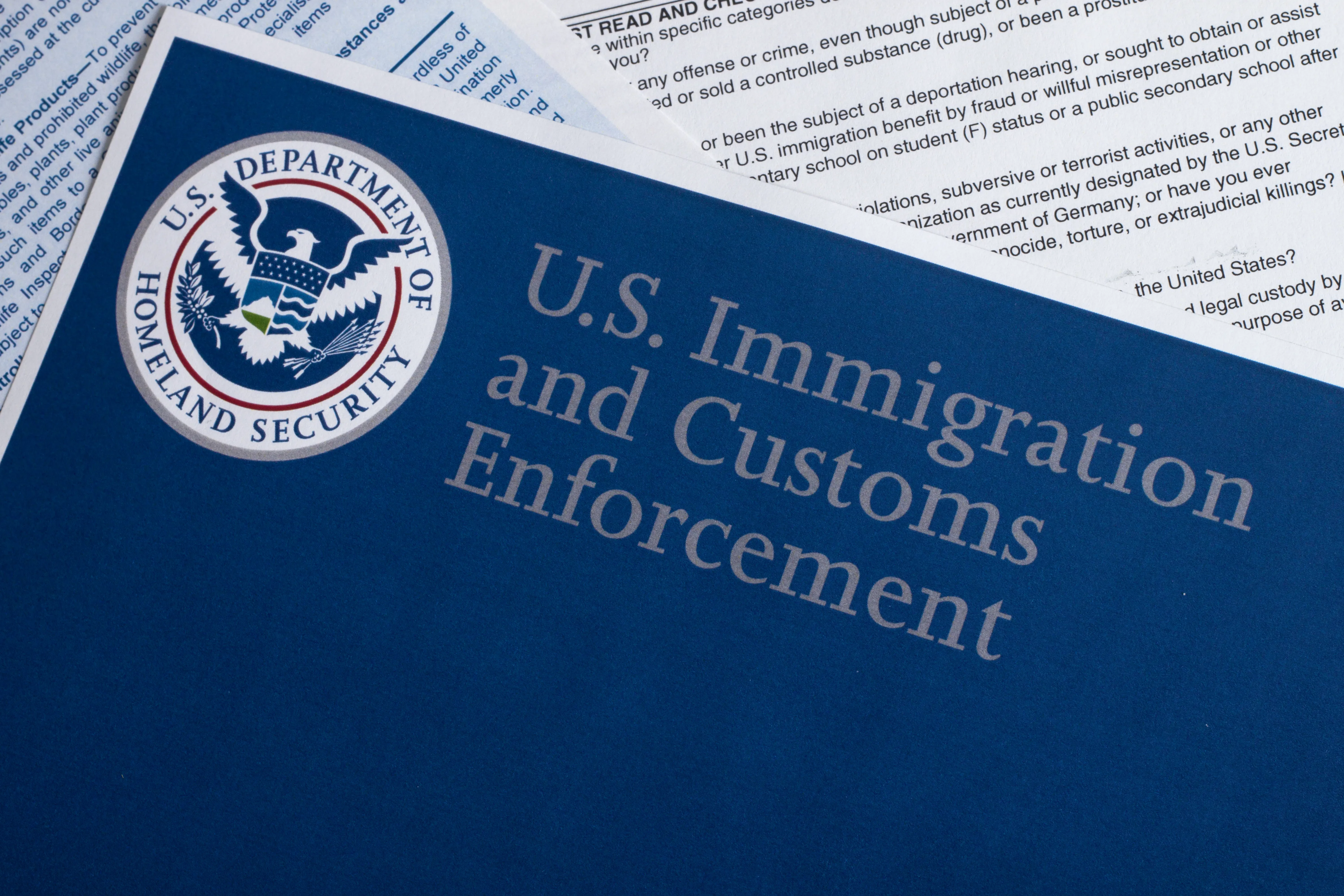
Trade war fears ease as Trump pauses tariffs after concessions from Canada, Mexico
Major markets pared some losses after President Donald Trump paused his plans for 25 percent tariffs on goods from Mexico and Canada while starting talks with China on a 10 percent additional tariff over fentanyl smuggling.
Trump on Saturday ended decades of duty-free trade between the U.S., Mexico and Canada with a 25 percent tariff on imported goods from the two countries with a lower 10 percent tariff on Canadian energy resources. Trump said he'd keep the tariffs in place until the illegal fentanyl trade subsided. He also added a 10 percent tariff on imports from China over that country's role in producing the chemicals needed to make fentanyl, a powerful opioid blamed for the majority of U.S. overdose deaths.

U.S. President Donald Trump. FlickrCC - Gage Skidmore
Two days after hitting U.S. neighbors with tariffs, Trump relented after reaching temporary deals with both Mexico and Canada. The deals curbed losses on Wall Street although major indexes ended the day lower.
Mexican President Claudia Sheinbaum said Mexico will immediately reinforce the border with 10,000 members of the National Guard in a move to stop drug trafficking, an issue that has been a problem for decades.
Canadian Prime Minister Justin Trudeau also promised to reinforce the northern U.S. border in exchange for a pause on tariffs.
"Canada is implementing our $1.3 billion border plan – reinforcing the border with new choppers, technology and personnel, enhanced coordination with our American partners, and increased resources to stop the flow of fentanyl. Nearly 10,000 frontline personnel are and will be working on protecting the border," Trudeau wrote on X Monday afternoon after a call with Trump. "In addition, Canada is making new commitments to appoint a Fentanyl Czar, we will list cartels as terrorists, ensure 24/7 eyes on the border, launch a Canada-U.S. Joint Strike Force to combat organized crime, fentanyl and money laundering. I have also signed a new intelligence directive on organized crime and fentanyl and we will be backing it with $200 million."
Trudeau said "proposed tariffs will be paused for at least 30 days while we work together."
Trump made similar comments on his social media platform, Truth Social.

"Canada has agreed to ensure we have a secure Northern Border, and to finally end the deadly scourge of drugs like Fentanyl that have been pouring into our Country, killing hundreds of thousands of Americans, while destroying their families and communities all across our Country," Trump wrote.
Mexico, Canada and China are the top three U.S. trading partners responsible for about 40 percent of U.S. imports in 2024. Some economists predicted the move could push prices higher for U.S. consumers.
The Wall Street Journal's editorial board called it the "dumbest" trade war in history, a remark that Trump took exception to on Monday, going to so far as to label the outlet "fake news."
The Wall Street Journal editorial board said the stated goals of Trump's tariffs – to end fentanyl trafficking – was impossible.
"Mr. Trump's justification for this economic assault on the neighbors makes no sense ... drugs have flowed into the U.S. for decades, and will continue to do so as long as Americans keep using them. Neither country can stop it," the editorial board wrote.
Trump rejected that appraisal.
"Every single one of those countries is dying to make a deal. You know why, because they're ripping us off really badly," Trump said from the Oval Office on Monday afternoon. "And the United States is tired of just being ripped off."
He said those bad trade deals were responsible for the growing U.S. debt, which stands at $36.22 trillion, according to the U.S. Treasury Department.
"Every country your writing about right now is dying to make a deal because the deals they have right now are so good for – so good for them and so profitable for them," Trump said. "I think in the end you are going to see either very, very substantial are going to paid by them or they're going to make some kind of deal."
The United States-Mexico-Canada Agreement, or USMCA, governs trade between the U.S. and its northern and southern neighbors. It went into force on July 1, 2020, and Trump signed the deal. That agreement continue to allow for duty-free trading between the three countries, a longtime practice that Trump ended Saturday until pausing it Monday.
U.S. goods and services trade with USMCA totaled an estimated $1.8 trillion in 2022. Exports were $789.7 billion and imports were $974.3 billion. The U.S. goods and services trade deficit with USMCA was $184.6 billion in 2022, according to the Office of the United States Trade Representative.

















